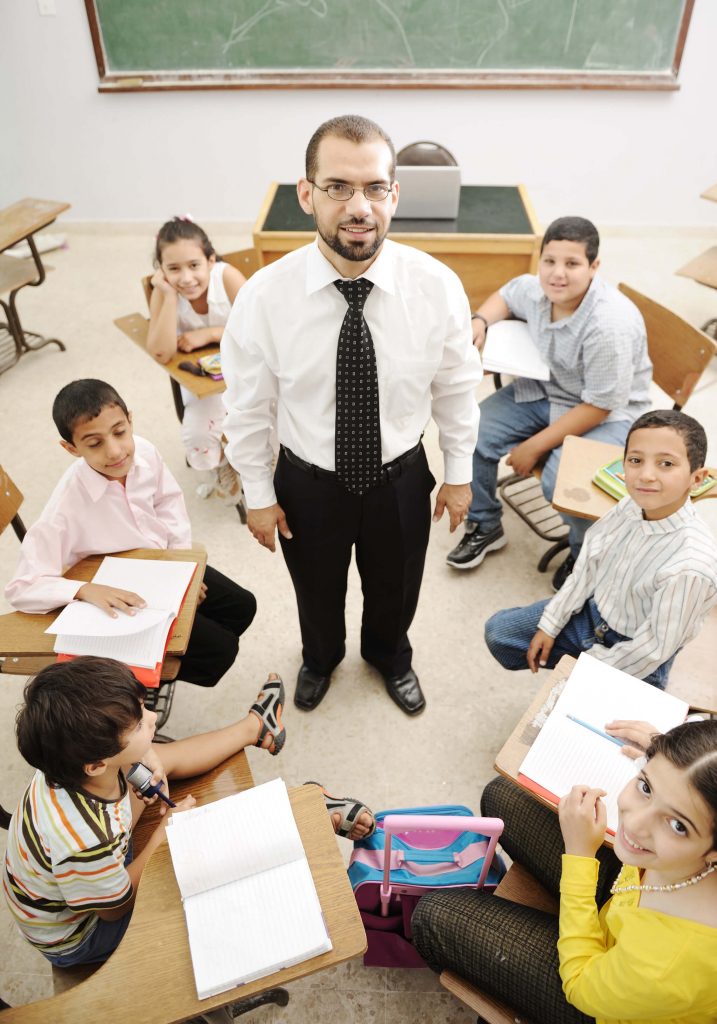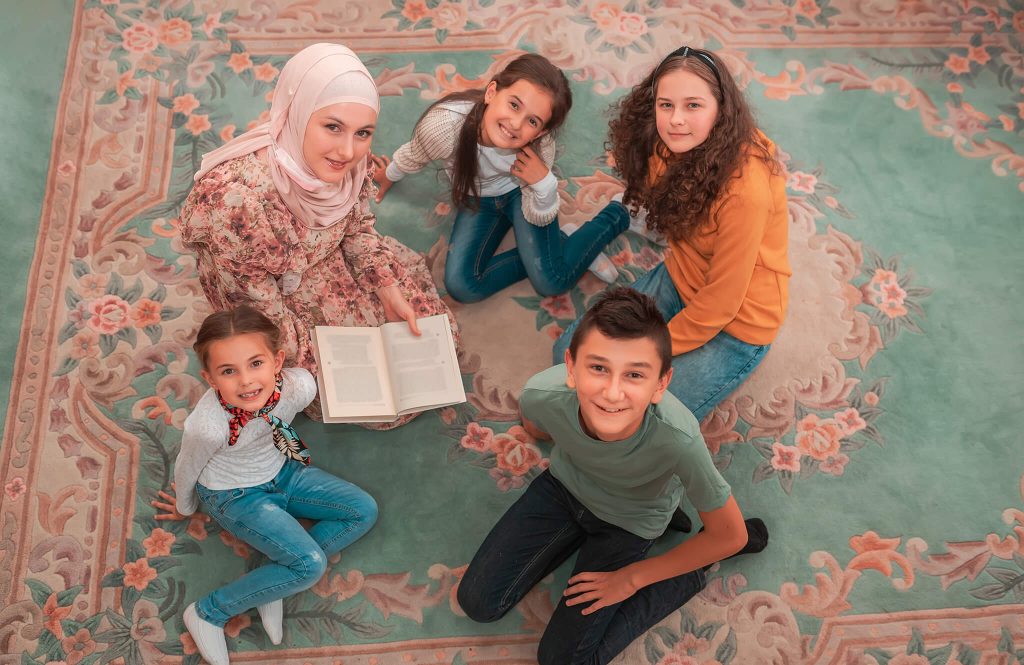The human being is hardwired to form relationships (Kline, 2008). Our neurobiological systems predispose us to cultivate nurturing relationships, as our brains and hormones react to facilitate deep bonds with other human beings. Healthy parental and peer relations have been known to be essential for positive youth development. In addition to parental and peer connections, strong student-teacher rapport empowers our youth to thrive. Teachers play a central role in the fostering of their students’ beliefs and values (Patall et al., 2013). One of the biggest takeaways from my years of researching motivation is the profound impact that student-teacher bonds have on student motivation, well-being, achievement, and identity (Eccles et al., 1993). Students who perceive their teachers as warm, caring, and supportive become motivated learners who benefit more from their schooling and are more invested in the subject matter taught (Roorda et al., 2011).
Islamic studies teachers have the potential to influence their students’ motivation to learn and engage with their faith. Motivation is not a term that merely implies excitement or enthusiasm, but it includes core beliefs about one’s self-efficacy and value for a particular behavior (Umarji et al., 2021). Within the context of Islamic studies classes, motivation leads to an increased interest in the subject and confidence that one can succeed in learning about Islam. One of the most profound ways that Islamic studies teachers can motivate their students is through inculcating a warm and caring personal relationship that is based on kindhearted concern and warmth. In this way, teachers will facilitate students to value the content that the Islamic studies curriculum contains. One may wonder why a warm and caring relationship is so important to motivation. Zimmer-Gembeck & Locke (2007) have shown that youth absorb the values and emulate those whom they love and feel an attachment towards. In our own research, we found that teachers who are perceived as warm and caring by their students at the beginning of the school year feel more efficacy and value both in the moment and at the end of the year (Umarji et al., 2021). Thus, teachers can influence student motivation both in the immediate present and in the future.

How do teachers build these nurturing relationships that support students? When Islamic studies teachers genuinely value each student and recognize their uniqueness, the students notice it and reciprocate. This means that teachers get to know each student directly, including their life stories and interests. Students will naturally bond with a teacher whom they perceive as personally interested in them. This involves asking students about their feelings and what is on their minds. It entails listening to them attentively and responding to their concerns with empathy and kindness. It means having amicable conversations with students and helping them overcome any challenges they are facing in life (Noddings, 2012; Umarji et al., 2021). If teachers of Islam show an interest in their students’ lives, they will find their students showing an interest in Islamic studies as well. Previous research finds that effective teachers touch the minds and hearts of their students, as well as model behaviors and create a safe space for students to critically engage with the content (Nasser, Miller-Idriss & Alwani, 2019). These types of caring teaching practices are much needed in Islamic studies classes as well (see Zahra Rafie’s blog post).
Unfortunately, Islamic studies is often seen as boring and irrelevant to students. In classroom observations I have done over the years, I have seen students half-asleep or distracted as teachers attempted to convey the lesson as is from a textbook. However, the role of the teacher is not to only lecture and teach from books. Rather, teachers must demonstrate to students how Islam matters in their lives, and this requires the teacher to deeply understand their students’ lives (Kazmi, 1999). Warm and personal teachers focus on being responsive to students’ needs (Noddings, 2006; Noddings, 2012), instead of centering the curriculum alone. The messenger of Allah (peace be upon him) won the hearts of the youth with compassion and care. He joked with them and showed them affection. He cared for them personally. He didn’t just tell them what Islam was but rather he was a walking Qur’an – someone who role-modeled his teachings in his daily practice. Ultimately, the motivation to practice Islam emanated from his students’ love and attachment to him. Teachers who aspire to impact the minds of their students must begin by connecting with their hearts through care and warmth.
References
Eccles, J. S., Midgley, C., Wigeld, A., Buchanan, C. M., Reuman, D., & Flanagan, C. (1993). The impact of stage-environment on young adolescents experiences in schools and in families. American Psychologist, 48(2), 90-101.
Kazmi, Y. (1999). The notion of murabbī in Islam: An Islamic critique of trends in contemporary education. Islamic Studies, 38(2), 209-233.
Kline, K. K. (2008). Hardwired to connect: The new scientific case for authoritative communities. In Authoritative Communities (pp. 3-68). Springer, New York, NY.
Nasser, I., Miller-Idriss, C., & Alwani, A. (2019). Reconceptualizing Education Transformation
in Muslim Societies. Journal of Education in Muslim Societies, 1(1),3–25. DOI 10.2979/jems.1.1.02 • Copyright © 2019 International Institute of Islamic Though
Noddings, N. (2006). Educational leaders as caring teachers. School leadership and management, 26(4), 339-345.
Noddings, N. (2012). The caring relation in teaching. Oxford Review of Education, 38(6), 771-781.
Patall, E. A., Dent, A. L., Oyer, M., & Wynn, S. R. (2013). Student autonomy and course value: The unique and cumulative roles of various teacher practices. Motivation and Emotion, 37(1), 14-32.
Roorda, D. L., Koomen, H. M., Spilt, J. L., & Oort, F. J. (2011). The influence of affective teacher–student relationships on students’ school engagement and achievement: A meta-analytic approach. Review of Educational Research, 81(4), 493-529.
Umarji, O., Dicke, A. L., Safavian, N., Karabenick, S. A., & Eccles, J. S. (2021). Teachers caring for students and students caring for math: The development of culturally and linguistically diverse adolescents’ math motivation. Journal of School Psychology, 84, 32-48.
Zimmer-Gembeck, M. J., & Locke, E. M. (2007). The socialization of adolescent coping behaviours: Relationships with families and teachers. Journal of Adolescence, 30(1), 1-16.



